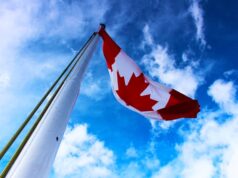
After the attacks by Sri Lanka, President Sirisena wants to rebuild the security apparatus because evidence of the assassination had not permeated him and other decision-makers.
Sri Lanka’s President Maithripala Sirisena claims to have been left in the dark, as well as the rest of the government, about the possible danger of a terrorist attack in his country.
He would resolutely crack down on those who withheld intelligence from him and others, Sirisena said in a televised speech. He would completely rebuild the security forces as a result of this failure.
Earlier, Minister of Defense Ruwan Wijewardene also said that intelligence officials knew of such a threat even before the attacks on Sunday with over 320 deaths. „However, this information was only shared among a few officers,“ he said.
Accordingly, on April 11, the Deputy Inspector General of the Sri Lankan Police sent a letter with a very concrete warning of imminent attacks on churches to the directors of four security agencies. Also to Prime Minister Ranil Wickremesinghe the information was reportedly not penetrated.
A country in shock
The whole country is in shock. Add to this the alleged letter of confession of the terrorist group „Islamic State“. The attackers were their fighters, they write on their propaganda page „Amaq“.
Sri Lanka’s Deputy Secretary of Defense had previously said in parliament that the preliminary investigations had revealed that the assassinations were „retaliatory“ because of attacks on Muslims in a mosque just a few weeks ago in New Zealand. An Australian right-wing extremist killed 50 mosque visitors in Christchurch.
In Sri Lanka, 40 people have been arrested by the police. They all belong to the radical Islamic group National Thowheeth Jama’ath (NTJ), which has hardly appeared in Sri Lanka so far. The government officially blames this group for the attacks. The government in Sri Lanka is convinced that the perpetrators had help from abroad.
Deputy Defense Minister Ruwan Wijewarden spoke of connections to an organization in India called JMI. Even that is hardly known, it should have been founded last year.
Doubt with terrorism experts
Terrorism expert Ajai Sahni finds some statements by the government in Sri Lanka not entirely conclusive. He heads the Institute for Conflict Management in New Delhi. „They say they also arrested the leaders of the radical NTJ, and I wonder why they should sit quietly in Sri Lanka,“ he says. „If they knew what was going on, they would probably have fled.“ Many questions are not answered. „But it is quite certain that the suicide bombers from Sri Lanka themselves come, we could see that on pictures of security cameras.“
Sahni is researching terrorism in South Asia and, like many terrorist experts, is completely surprised that such Islamist terrorist acts have taken place in Sri Lanka:
„There is virtually no information about this group of NTJs, but now we hear that they may be a faction of another extremist group in Sri Lanka, but the NTJ has never had anything to do with terror, but we know that it is radical are spreading fundamentalist doctrine and hounding hate speech against Buddhists. “
Although the people in Sri Lanka also want answers, why and how it came to the deeds, today, above all, the mourning is in the foreground. More than 300 people died in the attacks.
Presumably, even more victims were prevented: Even a fourth hotel was, according to the Prime Minister Ranil Wickremesinghe target of the attacks – there failed the assassination, however.



